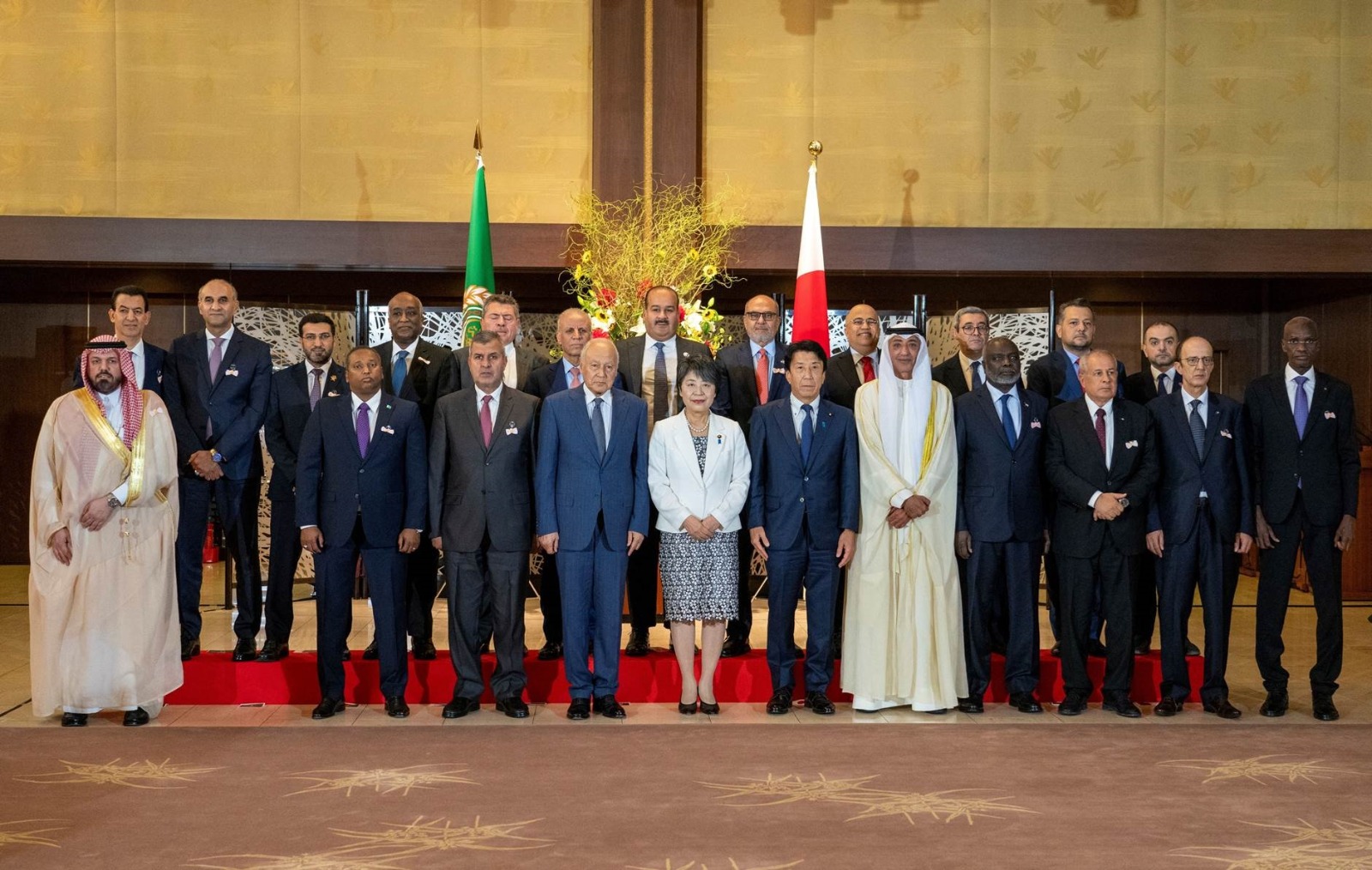Qatar participates in Arab-Japan Economic Forum in Tokyo

Qatar participated in the Fifth Japan-Arab Economic Forum in Tokyo to enhance economic relations, focusing on energy, technology, and sustainable development.
Qatar participated in the Fifth Japan-Arab Economic Forum in Tokyo, where discussions focused on enhancing economic relations between both sides.
In a statement on Sunday, Qatar’s foreign ministry confirmed the attendance of the Gulf state’s ambassador to Japan, Jaber bin Jarallah Al Marri, at the forum.
“The forum discussed ways to enhance economic relations between Japan and Arab countries through cooperation in an array of fields, including energy security, renewable energy, artificial intelligence, emerging technology and innovations, efforts to achieve sustainable development goals, and human resources development,” the statement said.
Japan’s foreign ministry hosted the event between July 10-11 with the presence of Ahmed Aboul Gheit, the Arab League’s Secretary-General. The latest edition saw the attendance of around 700 participants.
Discussions focused on the diversification of economic relationships and innovation collaboration between the Arab countries and Japan. Joint response to climate change and the use of emerging technologies, especially Artificial Intelligence, were on the meetings’ agenda.
Economic resilience was another key area of focus at the forum, where the forum’s participants exchanged views on numerous sectors including energy security, digital infrastructure and innovation.
The participants also decided to hold the sixth Japan-Arab Economic Forum in an Arab country in 2026, the Japanese foreign ministry said, without provide further details on the matter.
The first forum took place in Tokyo in 2009, the second in Tunis in 2010, the third in Tokyo in 2013, and the fourth in Casablanca in 2016.
“Through the discussions in the Forum, the two sides concurred on the importance of deepening economic relations, especially in the areas of trade, investment, energy, technology, human resources development, and new challenges such as climate change,” the Japanese foreign ministry said on July 11.
Japan has also been working on strengthening its ties with the Gulf Cooperation Council, especially given the latter’s ability to support Tokyo in the energy field.
The First Japan-GCC Foreign Ministers’ Meeting took place last September in Riyadh, where both sides agreed to continue close cooperation on regional and international matters.
Japan has also been negotiating a free trade agreement (FTA) in a bid to further expand its ties with the region. The first such talks on forming a GCC-Japan FTA took place in 2006, which followed a series of meetings on the matter.
Tokyo does not impose tariffs on GCC goods whereas the bloc imposes a 5 percent tariff on most Japanese products.
Meanwhile, Japan is among a number of Asian buyers that share long-term contracts with Qatar for liquified natural gas (LNG).
Notably, Japan became Qatar’s first LNG customer in the late 1990’s, when the country made its first sale and purchase agreement with Japan’s Chubu Electric for 4 tonnes of the gas per annum.
Related
Qatar emphasizes importance of reaching agreement between US, Iran
CAIROQatar's Prime Minister Sheikh Mohammed bin Abdulrahman Al-Thani stressed the critical need for an agreement between the US and
International Women’s Day: Seeking a Balance with Ghada Al Subaey
1309’s Ghada Al Subaey of Qatar celebrates the many layers of femininity in her recent drop, called Labyrinth of Light. This International Women’s Day, the
Discover Ooredoo Plans and Services in Qatar
Ooredoo is the household name in the field of telecommunications and provides a full portfolio of telecom services: mobile plans for everyone, home
What Will The Imminent Qatar Airways Widebody Order Include?
Which Airline Alliance Do You Prefer To Fly With?












